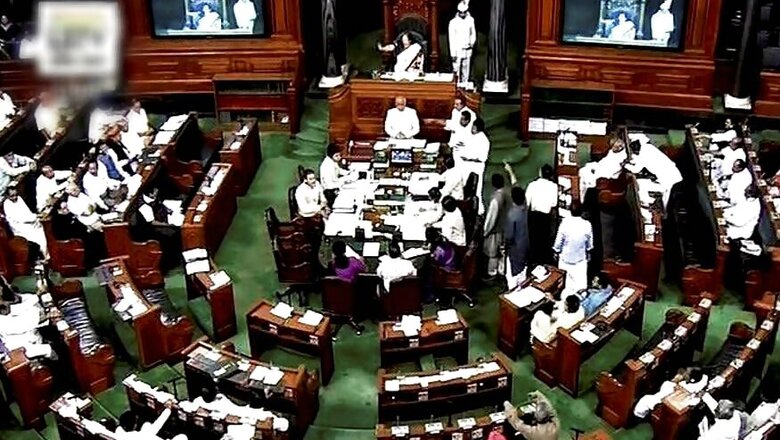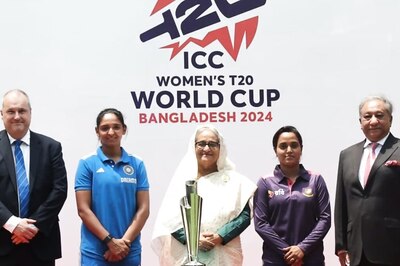
views
New Delhi: The underrepresentation of Muslims in politics has been extensively debated, especially after the 2006 Justice Sachar Committee report, which highlighted the lack of adequate ‘Muslim voice’ in the government.
As voting in the Lok Sabha elections comes to a close on Sunday, the issue is back in the spotlight with a report that will soon be released by Zafar Mahmood’s Zakat Foundation.
The report by Zafar Mahmood, a former officer on special duty to the Sachar Committee, seeks to improve the opportunities for Muslims to contest and get elected to the Parliament, the state assemblies and the local bodies through correction in the ground-level delimitation exercise. “The Section 9 (1) (c) of the Delimitation Act mandates that those constituencies shall be reserved for SC where their percentage is highest in the state. However, this law has been violated,” read the new report.
Mahmood is now the chief editor of ‘Restoration of Representational Justice to Muslims in India – Case for De-reservation of Illegally Reserved Electoral Constituencies’. He, along with other activists, plans to approach the judiciary for a constitutional remedy to curb the violation of law and to assure justice to the underrepresented Muslims and Dalits. Editorial Board – Rev Fr Packiam, T Samuel, Laxmi Sharma, Nirmal Singh.
“Constituencies and wards with Muslim concentration were declared as ‘reserved’ from where only Scheduled Caste (SC) candidates can contest. With this move, it was found that Muslims are being systematically denied political participation,” Mahmood pointed out.
He has also raised concern about constituencies that have a high Scheduled Caste population but are not reserved. “This is injustice to SCs as their larger population sections remain unrepresented and do not benefit from the MPLAD funds,” he added.
“The matter had been adequately flagged by Justice Sachar Committee but the detailed study was left to be done by the Delimitation Commission to whom this issue was never referred by either government,” Mahmood said.
In order to fill this gap, the Zakat Foundation established its Delimitation Cell where this matter has been professionally and deeply researched since 2012. Now, the countrywide comprehensive data is in its final stages of compilation.”
Illegally Reserved Constituencies
Citing the violation of “Section 9 (1) (c) of the Delimitation Act,” the report says, “The Prime Minister’s high-level committee chaired by Justice Rajinder Sachar reported in November 2006 that Muslims are lagging behind everybody else, including the SCs, in social, economic and educational fields.”
The prime reason stated was their thorough underrepresentation in the country’s governance.
“The Justice Sachar committee pointed out that the political under representation of Muslims is substantially caused by illegal earmarking of electoral constituencies and wards to be reserved for SCs as referred to in para one above. Establish a delimitation procedure that does not reserve constituencies with high minority population for SCs,” said the report.
Invariably, those constituencies and wards are reserved where SC percentage is quite low and negligible but of Muslims is very high. Therefore, Sachar committee strongly recommended that the Delimitation Commission should be assigned the job of correcting these widespread anomalies. But the government did not do so ever after the presentation of the committee’s report
In 2012, the foundation took up the responsibility of collecting required data from India’s official statistics. The work is now complete – except for the state of Assam for which recent data is not available.
This publication gives basic data of the Lok Sabha constituencies and provincial assemblies, indicating those which need to be de-reserved and the ones that can be considered to be reserved instead. A number of seats in the Parliament, state Assemblies, municipalities and village-level institutions are reserved for Scheduled Castes (SC) and Scheduled Tribes (ST).
Mahmood said no action was taken – neither by the then UPA government (which remained in power for the next seven years) nor by the subsequent NDA government (2014-2019) – to implement this vital recommendation. In this regard, on June 29, 2013, he had made a powerpoint presentation before PM Narendra Modi when he was the chief minister of Gujarat and a prime ministerial aspirant.
After he took over as prime minister, the foundation followed it up through letters to him.
“On February 3, 2019, a similar presentation was made by me at Nagpur before Nitin Gadkari at a conference on ‘Muslim issues and their solutions’. It was organised by Vidarbha Muslim Intellectuals Forum. Gadkari promised to bring the issues raised by me to the attention of the central government and the BJP. But there has been no progress so far,” said Mahmood.
As per the 2011 census, there are constituencies across the country where restoration of justice is required for Muslims and Dalits. Citing an example from Uttar Pradesh, Mahmood said that the Nagina Lok Sabha constituency has 43.21 per cent Muslim population and 22.05 per cent Scheduled Castes population and it is reserved for the SCs. Similarly, the Nagina assembly seat has 56.8 per cent Muslim population and 26.7 per cent SC population and it is reserved for the SCs.
On the other hand, Dhuarahra and Unnao Lok Sabha seats have more than 30 per cent SC population ad much less Muslim presence, but these are not reserved for the SCs. Chail, Maholi, Manikpur, Sirathu, Harchandpur, Hardoi, Purva, Marihan, Bakshi ka Talab, and other assembly constituencies have more than 30 percent SC population and negligible Muslim presence, but these are not reserved for the SCs.
The new report seeks to discuss these anomalies for wider and fairer representation of Muslims and other minorities.
















Comments
0 comment